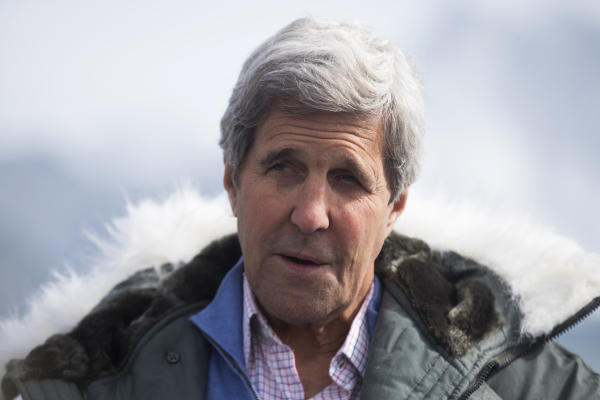Standing near Greenland’s Jakobshavn glacier, U.S Secretary of State John Kerry perceived the signs set towards a looming catastrophe. Giant icebergs broken off from the glacier signaled eventual rising of oceans which scientists warn will submerge islands and populated coastal regions.
Briefed by researchers aboard a Royal Danish Navy patrol ship, Kerry appeared short to stunned by how fast the ice sheets are melting. He was struck by the more dire warnings he was hearing about the same process underway in Antarctica. “This has been a significant eye-opener for me and I have spent 25 years engaged in this issue,” Kerry said.
Kerry made his first visit to this part of the Arctic to witness the effects of climate changes and press the need to implement the Paris climate accord.
He has called climate change “the world’s most fearsome weapon of mass destruction”.The landmark Paris agreement included commitments by most nations to reduce carbon emissions contributing to climate change but lacked any enforcement mechanism, leaving open who will pay costs that will rise into the trillions of dollars.
“What we did in Paris … is critical now to be implemented, but it is not enough,” he said. “We have to all move faster in order to embrace new energy policies that are sustainable, that are clean, all of which are there for the using if governments and private sector make the right choices.”
Visiting Greenland and Svalbard in Norway’s extreme north this week, Kerry focused on some of the most visible impacts of climate change.
“There is no mistaking that we are contributing to climate change, we human beings have choices that can undo the damage,” said Kerry. “There is profound change throughout the Arctic.”
Jakobshavn is one of the world’s biggest glaciers and the most active in the Arctic, where ice sheets are melting at a rate faster than ever before.
